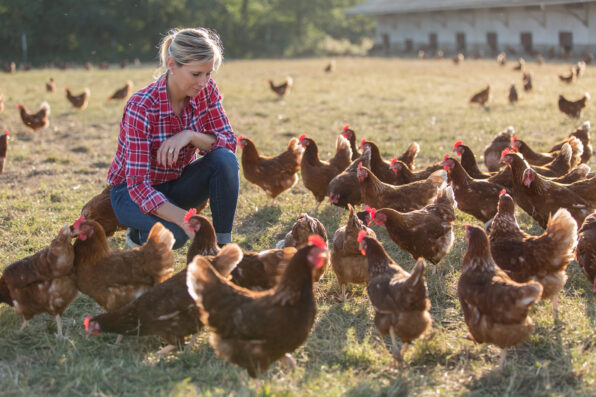New Research Finds “Concerning” Levels Of Anxiety Among Women In Farming Due To Financial Stressors, Isolation, And Workload

A new study conducted by researchers at the University of Exeter in England has found that long working hours, financial pressures, and isolation have caused “concerning” anxiety levels among women in farming.
Gender inequalities present within agriculture, the stress of trying to balance childcare and non-farming responsibilities, as well as rural crime and instances of domestic violence, may also be contributing to mental health struggles.
In fact, 23% of the women who participated in the study had anxiety. Approximately 35% experienced mild anxiety; meanwhile, just over 42% did not experience anxiety.
Workload, financial stressors, isolation, and familial relationships were found to have the strongest correlation with both moderate and severe anxiety.
The study was conducted by Dr. Rebecca Wheeler and Professor Matt Lobley. They first surveyed a large group of 15,296 individuals from the agricultural community. Then, the pair utilized standardized instruments– such as the Generalized Anxiety Disorder-7 scale (GAD-7)– to analyze the well-being and mental health of 3,487 female participants from the group.
“We have found concerning levels of anxiety among farming women, and this should be seen as a call to action. There are clear associations between anxiety, stress, and loneliness and, although we cannot ascertain causality, these point to issues that demand attention in efforts to improve mental health,” said Dr. Wheeler.
Professor Lobley agreed and added that addressing only the mental health symptoms would not be sufficient. Instead, there is also a dire need to reduce some of the common stressors impacting farming women.
“For instance, providing greater business-related support and seeking opportunities to help farm women build and maintain stronger social relationships,” Professor Lobley explained.
Women between the ages of 25 and 34 were found to experience the highest levels of loneliness, which were significantly greater than the wider population. This same age group was also most likely to experience anxiety.

eric – stock.adobe.com – illustrative purposes only, not the actual person
Additionally, younger women were found to be more stressed out by financial pressures. At the same time, they were less concerned about the future of farming and agriculture as opposed to older women.
Still, 50% of women between the ages of 25 and 44 reported feeling extremely stressed out by financial pressures.
According to Dr. Wheeler, it is the intersection of stressors, pressures, and concerns that make anxiety and loneliness prevalent among women in farming.
“It is easy to imagine how any confluence of strained family relationships, long working hours, and feeling isolated might be associated with a person also feeling lonely and/or anxious,” Dr. Wheeler underscored.
“The addition of numerous other common farming stressors– many of which concern factors lying outside the control of individual farmers and farming families– can only add to this burden.”
To read the study’s complete findings, which have since been published in the Journal of Agromedicine, visit the link here.
If true crime defines your free time, this is for you: join Chip Chick’s True Crime Tribe
In 1982, This Mother Of Two Vanished After Escaping From A Psychiatric Hospital In Alabama
Do You Know Who The First Female Film Director Ever Was?
Sign up for Chip Chick’s newsletter and get stories like this delivered to your inbox.
More About:Science





